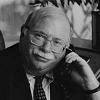- 16 Jul 2011 16:30
#13757599

"You can do anything you want, provided you do not harm others."
I've been thinking about this a lot lately. I think both libertarians and socialists might be able to coexist in a society following this maxim. I think socialists (and I have a certain conception of what that term could entail) would be happy with a society whose economic units consisted of non-government federations of organizations that are collectively run by its workers and NOT a separate board of directors who did not produce a surplus. This socialism would also also allow self-employment and partnerships to exist side by side with these collectives/co-ops/communes because there is no hired labor involved. Resources would be made available so both types of economic units (collective and individual) could exist.
I think many self-described Libertarians would also approve of this. They would like the non-government and voluntary aspects of these organizations. They would like the self-employment (also known as ancient class structures).
But would the libertarians insist that people have the right to hire wage labor (which here includes the concept of surplus being appropriated by someone other than the worker)?
I've been thinking about this a lot lately. I think both libertarians and socialists might be able to coexist in a society following this maxim. I think socialists (and I have a certain conception of what that term could entail) would be happy with a society whose economic units consisted of non-government federations of organizations that are collectively run by its workers and NOT a separate board of directors who did not produce a surplus. This socialism would also also allow self-employment and partnerships to exist side by side with these collectives/co-ops/communes because there is no hired labor involved. Resources would be made available so both types of economic units (collective and individual) could exist.
I think many self-described Libertarians would also approve of this. They would like the non-government and voluntary aspects of these organizations. They would like the self-employment (also known as ancient class structures).
But would the libertarians insist that people have the right to hire wage labor (which here includes the concept of surplus being appropriated by someone other than the worker)?




















 - By wat0n
- By wat0n - By Rancid
- By Rancid